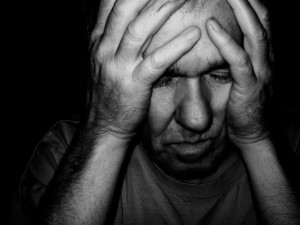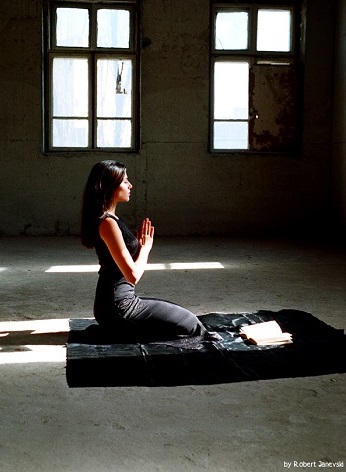Today we embark on Day Four of our examination of The Hsin Hsin Ming — Verses on the Faith Mind by Chien-chih Seng-ts’an, the Third Zen Patriarch. We are nearing the end of this effort to share and understand this profound writing. I expect we will finish this in our fifth and final installment on Monday, July 13th. Today I see much repetition in the verses of concepts we have already discussed, so I fully expect this analysis will be fairly short.
The verses we shall discuss today are as follows:
To live in the Great Way is neither easy nor difficult.
But those with limited views are fearful and irresolute:
the faster they hurry, the slower they go.
And clinging (attachment) cannot be limited:
Even to be attached to the idea of enlightenment
is to go astray.
***
Just let things be in their own way
and there will be neither coming not going.
Obey the nature of things (your own nature)
and you will walk freely and undisturbed.
All attachment is a misuse of the mind and leads us, inevitably to suffering,  even attachment to what the mind thinks enlightenment should look like. No matter how wise we are, the mind cannot comprehend the width and breadth of capital “M†Mind, our true Self. Any version of enlightenment which mind can imagine, must necessarily fall short of the Truth that enlightenment affords. The problem with being attached to anything, even the concept of enlightenment, is that we suffer anytime life falls short of our definitions and expectations. It is best to simply not bother, to “let things be in their own way†as Chien-chih Seng-ts’an suggests without the minds interference; without defining, expecting or attaching to such definitions or expectations.
even attachment to what the mind thinks enlightenment should look like. No matter how wise we are, the mind cannot comprehend the width and breadth of capital “M†Mind, our true Self. Any version of enlightenment which mind can imagine, must necessarily fall short of the Truth that enlightenment affords. The problem with being attached to anything, even the concept of enlightenment, is that we suffer anytime life falls short of our definitions and expectations. It is best to simply not bother, to “let things be in their own way†as Chien-chih Seng-ts’an suggests without the minds interference; without defining, expecting or attaching to such definitions or expectations.
I hope that it clear. I am really struggling to put the concept of merely allowing everything to “be” into words which seek to define that which begs no such definition. Such is the nature of writing about a way of living which is beyond the mind’s ability to put into language.
When the thought is in bondage the truth is hidden
for everything is murky and unclear.
And the burdensome practice of judging
brings annoyance and weariness.
What benefit can be derived
from distinctions and separations?
***
If you wish to move in the One Way
do not dislike even the world of senses and ideas.
Indeed, to accept them fully
is identical with enlightenment.
Every True spiritual path directs us to greater and wider freedom.  By abandoning the natural tendencies of the human mind, we find ourselves free to let life Be greater than we can possibly imagine. I think it is important, here, to state that there is nothing wrong with the human mind. The ego serves a very real function. It has kept us safe, up to this point in our life, which is really its purpose. The challenge is that this safety net can only take us so far. The fact that you are exploring this teaching, with me, proves that your soul has a desire to go beyond the limitations imposed by the human mind. So, do not judge the wonderful brain which holds historical data you need for your journey, but do not cling to that “instrument of the past,” either. For the freedom you seek, the ecstasy we all crave, lies out beyond the boundaries of the minds borders.
By abandoning the natural tendencies of the human mind, we find ourselves free to let life Be greater than we can possibly imagine. I think it is important, here, to state that there is nothing wrong with the human mind. The ego serves a very real function. It has kept us safe, up to this point in our life, which is really its purpose. The challenge is that this safety net can only take us so far. The fact that you are exploring this teaching, with me, proves that your soul has a desire to go beyond the limitations imposed by the human mind. So, do not judge the wonderful brain which holds historical data you need for your journey, but do not cling to that “instrument of the past,” either. For the freedom you seek, the ecstasy we all crave, lies out beyond the boundaries of the minds borders.
The wise man strives to no goals
but the foolish man fetters himself.
There is one Dharma, not many.
Distinctions arise
from the clinging needs of the ignorant.
To seek Mind with the (discriminating) mind
is the greatest of all mistakes.
***
Rest and unrest derive from illusion;
with enlightenment
there is no liking and disliking.
All dualities come from ignorant inference.
They are like dreams or flowers in air –
foolish to try to grasp them.
Gain and loss, right and wrong,
such thoughts must
finally be abolished at once.
Similar to the way I write, Chien-chih Seng-ts’an repeats himself here so that anyone who missed the message, in the other ways he expressed these Truths, will once again have the opportunity to grasp them here. I recommend rereading the entire Hsin Hsin Ming, up to this point, with a quiet mind and allow its beauty and its Truth to open new doors for you. Even though it is true that we cannot truly experience enlightenment with the same mind which has brought us to this point, we can begin to recognize that these words point us in a direction which is beyond any place we have ever been, even if we have had glimpses of enlightenment. As Rumi is so famously quoted as saying,
“Out beyond ideas of wrongdoing and rightdoing,
there is a field. I’ll meet you there.
When the soul lies down in that grass,
the world is too full to talk about.
Ideas, language, even the phrase “each other” doesn’t make any sense.â€
If you are successful at allowing the thoughts expressed in the Hsin Hsin Ming to sink into your awareness, I am certain that you will understand these words of Rumi with a new-found clarity. They do, afterall, point in the exact same direction as Chien-chih Seng-ts’an’s profound thoughts.
If the eye never sleeps,
all dreams will naturally cease.
If the mind makes no discriminations,
the ten thousand things are as they are,
of single essence.
To understand the mystery of this One-essence
is to be released from all entanglements.
I say, with great regularity, that once we understand who and what we are, our life changes dramatically. When we finally own the Truth that we are not our bodies, that we are not our minds, we are, at once, freed of all the “entanglements†that the old-mind created so naturally. Any spiritual path, worth pursuing, offers freedom as its end-goal, even if many of the more fundamental traditions mask this promise in language which does not necessarily state this objective clearly. When we focus on similarities as opposed to arguing differences, we learn that all “true†spiritual pursuits lead the aspirant in the direction of greater freedom, even if the idea of “how†to get there differs.
In Truth, there is never anything to be free of, except the concept that freedom is needed, but that is the subject for another day. Today I want to close with the wise words of the infamous Fourth-Century Taoist and Mystic Chuang Tzu:
The non-action of the wise person 
Is not inaction.
It is not studied.
It is not shaken by anything.
The sage is quiet
Because she is not moved,
Not because she wills to be quiet.
Her quietness is the mirror
Of heaven and earth
The glass of everything.
Emptiness, stillness, tranquility,
Traceless,
Silence, non-action:
This is the level of
Heaven and earth.
This is the perfect Tao.
Ultimately freedom is remembered, not really found. It is uncovered in the Peace which we encounter when we are able to quiet our restless minds. It is recalled in the silence where Self resides and True Mind exists. No one can take us to this discovery, nor can anyone walk this path for us. All anyone can ever do is point the way and promise that the journey will be worth the effort, if one has the tenacity to persevere.
